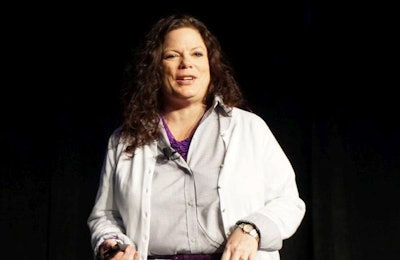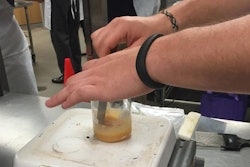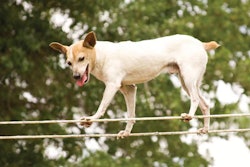
States working together to solve agricultural issues related to the pet food industry should consider forming smaller, more focused groups, according to the Kansas Secretary of Agriculture.
On April 20, Dr. Jackie McClaskey, her deputy director, Chad Bontrager, and Lynne Hinrichensen, Kansas’ agribusiness development, told pet food industry professionals gathered at the Petfood Forum in Kansas City, Missouri, USA, about how state and local governments can work with private enterprises to further their mutual interests.
McClaskey and her cabinet spoke about Kansas' role in the national pet food industry and the state’s numerous programs to provide incentive for business' locations and encourage employment growth in the state. The state’s secretary of agriculture also fielded questions from the audience. The questions centered on the collaboration, or lack thereof, between states involved with the pet food industry.
An audience member who said she represented a small distributor that does business around the country asked McClaskey why there isn’t more uniformity between state licensing and registration requirements. The audience member said the lack of uniformity creates significant challenges and hurts her business.
McClaskey said that’s a problem her department and others deal with frequently and the only thing her state can truly control is how well it does its job. She said there is no national law demanding uniformity between states, and which governmental department handles pet food issues is often different from state to state, too. The secretary of agriculture said the best solution would be getting all of the states together and seeing how they can change their policies and match them up in order to ease the burden on businesses. Ideally, the groups of states would be small and focused on one geographic area because crafting a national solution is difficult.
In a general sense, if there are significant changes to agricultural policy that don’t come from Washington D.C., it’s likely that one state who crafts the first regulations will become the model all the other states are following.

Kansas Secretary of Agriculture Dr. Jackie McClaskey speaks on Wednesday, April 20, at Petfood Forum in Kansas City, Missouri. | Photo by Austin Alonzo
A second audience member pointed out that The Association of American Feed Control Officials (AAFCO) already exists and should serve as a forum for interstate collaboration. McClaskey replied that AAFCO is just one of many national agricultural organizations Kansas is involved with, but the size of the organization makes it difficult for anything to be accomplished quickly.
A faster solution, she said, would be shrinking the conversation down to a few parties.
“That national piece is fantastic, but when I go to a (National Association of State Departments of Agriculture) meeting and there are 50 of us sitting around a table … it’s hard to actually get to a discussion and a decision, so maybe make that group a little smaller,” McClaskey said.



















